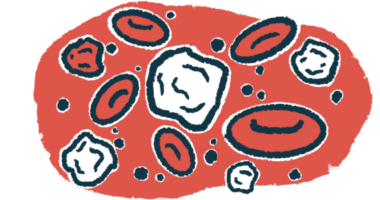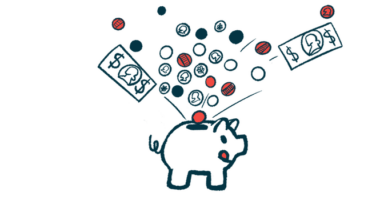Phase 3 trial of CAR T-cell therapy anito-cel for RRMM opens
Goal is to evaluate whether treatment is better than standard care

Kite Pharma has initiated iMMagine-3, a global Phase 3 clinical trial that’s set to test anitocabtagene autoleucel (anito-cel), an investigational CAR T-cell therapy, against standard care in adults with relapsed or refractory multiple myeloma (RRMM).
The announcement was made by Arcellx, Kite’s partner in the development of anito-cel, in a company press release reporting financial results and business updates.
The study (NCT06413498) aims to enroll up to 450 adults with RRMM who have received one to three prior lines of therapy, including immunomodulators and CD38 inhibitors, for a minimum of two consecutive cycles.
While location data are not yet available on the trial’s webpage, Kite and Arcellx previously announced that they anticipate recruiting participants at about 130 sites worldwide.
“We believe anito-cel has the potential to be a best-in-class treatment option, and with the strength of our Kite partnership, we are well-positioned to change the treatment paradigm for multiple myeloma patients,” said Rami Elghandour, Arcellx’s chairman and CEO.
CAR T-cell therapy as long-term treatment
Multiple myeloma is a blood cancer that forms from plasma cells, a type of white blood cells in the bone marrow. This type of cancer often does not respond to treatment (refractory) or returns after a period of remission with treatment (relapses), making it challenging to control it over the long term.
As a CAR T-cell therapy, anito-cel, formerly CART-ddBCMA, involves collecting a patient’s immune T-cells, modifying them in the lab, and returning them to the patient by infusion.
The collected T-cells are engineered to produce a chimeric antigen receptor, or CAR, that binds to B-cell maturation antigen (BCMA), a protein highly present on the surface of myeloma cells.
Upon infusion, the modified T-cells circulate in the bloodstream until they encounter myeloma cells. Once they bind to BCMA, T-cells are activated to destroy the myeloma cells, leaving healthy cells, which have no or reduced amounts of that protein, largely unharmed.
An ongoing Phase 2 trial, iMMagine-1 (NCT05396885), is evaluating anito-cel’s safety and effectiveness in up to 110 adults with RRMS who have received at least three lines of therapy, including an immunomodulator, a CD38 inhibitor, and a proteasome inhibitor.
Also sponsored by Kite, a Gilead company, iMMagine-1 was placed on partial clinical hold in 2023 by the U.S. Food and Drug Administration following the death of one patient. The hold was lifted after the trial’s protocol was modified to account for the prevention and management of the risk of side effects.
While the trial may still be recruiting at sites across the U.S., Arcellx submitted an abstract to present iMMagine-1 data at this year’s American Society of Hematology annual meeting, taking place Dec. 7-10 in San Diego.
“We look forward to presenting data from the iMMagine-1 study by the end of this year,” Elghandour said. “As iMMagine-1 continues to mature, we’re also pleased with the progress in iMMagine-3. We are thrilled about the momentum across our multiple myeloma program being developed in partnership with Kite.”
In the iMMagine-3 trial, patients will be randomly assigned to receive either a single infusion of anito-cel or their physician’s choice of standard treatment. Those assigned to anito-cel will first receive fludarabine plus cyclophosphamide for three days to eliminate any existing immune cells and making room for the modified T-cells.
The main goal is to evaluate whether the CAR T-cell therapy is superior to standard care at prolonging progression-free survival, or the time a person lives without signs of disease progression or death, whichever occurs first.
Secondary goals are differences in response rates, duration of response, overall survival, minimal residual disease negativity, quality of life, and development of antibodies against anito-cel for up to seven years. Minimal residual disease refers to a very small number of myeloma cells that can remain after treatment and cause a relapse.
The CAR T-cell therapy’s safety profile will also be assessed.
After completing iMMagine-3, all patients assigned to anito-cel will be invited to transition to a long-term extension study (NCT05041309) in which they will continue to be monitored for safety and efficacy out to 15 years.







